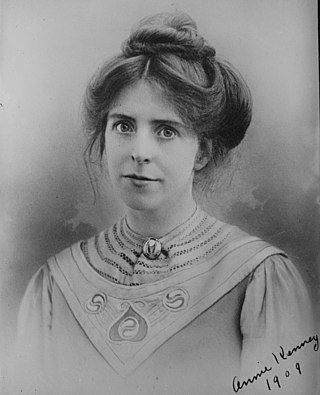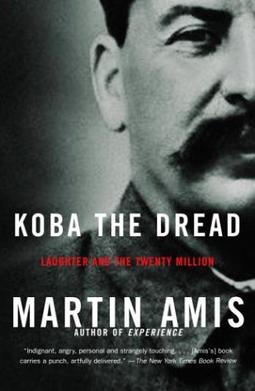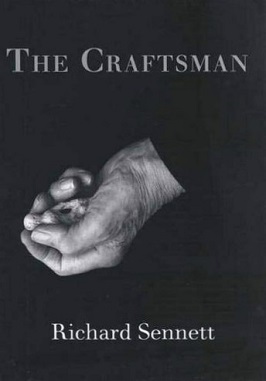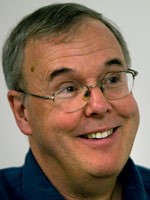Related Research Articles

Emily Wilding Davison was an English suffragette who fought for votes for women in Britain in the early twentieth century. A member of the Women's Social and Political Union (WSPU) and a militant fighter for her cause, she was arrested on nine occasions, went on hunger strike seven times and was force-fed on forty-nine occasions. She died after being hit by King George V's horse Anmer at the 1913 Derby when she walked onto the track during the race.
Investigative journalism is a form of journalism in which reporters deeply investigate a single topic of interest, such as serious crimes, racial injustice, political corruption, or corporate wrongdoing. An investigative journalist may spend months or years researching and preparing a report. Practitioners sometimes use the terms "watchdog reporting" or "accountability reporting".

Dame Christabel Harriette Pankhurst was a British suffragette born in Manchester, England. A co-founder of the Women's Social and Political Union (WSPU), she directed its militant actions from exile in France from 1912 to 1913. In 1914, she supported the war against Germany. After the war, she moved to the United States, where she worked as an evangelist for the Second Adventist movement.

Patricia Hill Collins is an American academic specializing in race, class, and gender. She is a distinguished university professor of sociology emerita at the University of Maryland, College Park. She is also the former head of the Department of African-American Studies at the University of Cincinnati. Collins was elected president of the American Sociological Association (ASA), and served in 2009 as the 100th president of the association – the first African-American woman to hold this position.

Ann "Annie" Kenney was an English working-class suffragette and socialist feminist who became a leading figure in the Women's Social and Political Union. She co-founded its first branch in London with Minnie Baldock. Kenney attracted the attention of the press and public in 1905 when she and Christabel Pankhurst were imprisoned for several days for assault and obstruction related to the questioning of Sir Edward Grey at a Liberal rally in Manchester on the issue of votes for women. The incident is credited with inaugurating a new phase in the struggle for women's suffrage in the UK with the adoption of militant tactics. Annie had friendships with Emmeline Pethick-Lawrence, Baroness Pethick-Lawrence, Mary Blathwayt, Clara Codd, Adela Pankhurst, and Christabel Pankhurst.
Dale Spender was an Australian feminist scholar, teacher, writer and consultant. In 1983, Dale Spender was co-founder of and editorial advisor to Pandora Press, the first of the feminist imprints devoted solely to non-fiction, committed, according to The New York Times, to showing that "women were the mothers of the novel and that any other version of its origin is but a myth of male creation". She was the series editor of Penguin's Australian Women's Library from 1987. Spender's work is "a major contribution to the recovery of women writers and theorists and to the documentation of the continuity of feminist activism and thought".
Peter Mansfield was a British political journalist.

Leonora Cohen was a British suffragette and trade unionist, and one of the first female magistrates. She was known as the "Tower Suffragette" after smashing a display case in the Tower of London and acted as a bodyguard for Emmeline Pankhurst. She lived to the age of 105 and contributed to the second wave of feminism in the 1970s.
Anne Hendershott is an American sociologist and author known for her conservative Christian writings on Catholic issues in US politics.
Fences and Windows: Dispatches from the Front Lines of the Globalization Debate is a 2002 book by Canadian journalist Naomi Klein and editor Debra Ann Levy. The book is a collection of newspaper articles, mostly from The Globe and Mail, with a few magazine articles from The Nation and speech transcripts. The articles and speeches were all written by Klein in the 30 months after the publication of her first book, No Logo (1999), from December 1999 to March 2002. The articles focus upon the anti-globalization movement, including protest events and responses by law enforcement. The book was published in North America and the United Kingdom in October 2002.

Koba the Dread: Laughter and the Twenty Million is a 2002 non-fiction book by British writer Martin Amis.
The Adult Suffrage Society was one of several organisations formed in the United Kingdom during the Victorian and Edwardian eras, with the objective of campaigning for the extension of voting rights to women. Unlike bodies such as the Pankhursts' Women's Social and Political Union, the Adult Suffrage Society did not find acceptable the extension of the franchise to women on the same restricted terms that it was then given to men—that is, on the basis of a property qualification that excluded the majority of the working class. It wanted full adult suffrage, the unrestricted right to vote, for all adults aged 21 or over. The society's members were often referred to as "adultists".

Electric Eden: Unearthing Britain's Visionary Music is a 2011 book by Rob Young about the history of British folk music in the 1960s and 1970s. It is published by Faber & Faber.

Demanding the Impossible is a book on the history of anarchism by Peter Marshall.

Age of Fracture is a 2011 history book about the disintegration of shared values in American social debate around the 1980s. It was written by Daniel T. Rodgers and published by Belknap Press. It won the 2012 Bancroft Prize.

The Craftsman is a book by Richard Sennett about craftmanship and its importance to individuals and society.
Catherine Slessor is an architecture writer, critic and former editor of The Architectural Review, and a contributor to Dezeen and Architects' Journal. She received an MBE in 2016 for her services to architectural journalism and in 2021 was elected president of The Twentieth Century Society.

The Hunger Strike Medal was a silver medal awarded between August 1909 and 1914 to suffragette prisoners by the leadership of the Women's Social and Political Union (WSPU). During their imprisonment, they went on hunger strike while serving their sentences in the prisons of the United Kingdom for acts of militancy in their campaign for women's suffrage. Many women were force-fed and their individual medals were created to reflect this.

Ivor Harold Gaber is a British academic and journalist, professor of political journalism at University of Sussex, and emeritus professor of broadcast journalism at Goldsmiths, University of London. He serves as the UK representative on UNESCO’s International Programme for the Development of Communication.

Douglas Mark Underwood is an American journalist and media studies scholar. He is a Professor of Communication at the University of Washington.
References
- 1 2 3 4 "Meet the team". BBC News. 5 October 2004.
- ↑ Abrams, Fran (23 September 2009). "In search of the lost generation". Prospect .
- ↑ "Author Bio". Learning to Fail: How Society Lets Young People Down. Routledge. 22 September 2009. ISBN 978-0203864821 . Retrieved 23 November 2014.
- ↑ Fran Abrams | LinkedIn Retrieved 2016-10-13.
- ↑ Sinfully delicious chocolates Retrieved 2016-10-13.
- ↑ Livingstone, Sophie (19 August 2002). "The twilight zone. Below the Breadline, Fran Abrams, Profile Books, 192pp, £6.99". New Statesman. 131 (4601): 37–38. ISSN 1364-7431.
- ↑ Bambra, Clare (November 2003). "The poverty of journalism?". Critical Social Policy. 23 (4): 547–550. doi:10.1177/02610183030234006. ISSN 0261-0183. S2CID 144012010.
- ↑ Hall, Tom (July 2004). "Through a Glass Darkly: Undercover in Low-pay Britain and America". Sociology. 38 (3): 623–630. doi:10.1177/0038038504043223. ISSN 0038-0385. S2CID 143335033.
- ↑ Devitt, Stewart (26 September 2002). "Below the Breadline (Book)". People Management. 8 (19): 58. ISSN 1358-6297.
- ↑ Barker, Paul (30 August 2002). "The lower reaches of the Savoy". Times Literary Supplement (5187): 22. ISSN 0307-661X . Retrieved 11 April 2019.
- ↑ "Freedom's Cause: Lives of the Suffragettes (Book)". Contemporary Review. 284 (1659): 256. April 2004. ISSN 0010-7565.
- ↑ Liddington, Jill (23 July 2004). "Sibling rivalries and other tales of sisterhood". Times Higher Education Supplement (1650): 28–29. ISSN 0049-3929 . Retrieved 11 April 2019.
- ↑ Apter, Terri (15 September 2006). "SEVEN KINGS". Times Literary Supplement (5398): 31. ISSN 0307-661X.
- ↑ Paylor, Ian (March 2010). "Learning to Fail: How Society Lets Young People Down, Fran Abrams, Abingdon, Routledge, 2010, pp. 167, ISBN 978 0 415 48396 4 (pb), £18.99". The British Journal of Social Work. 40 (2): 685–687. doi:10.1093/bjsw/bcq007. ISSN 1468-263X.
- ↑ Stevenson, Talitha (2 November 2012). "Seen and not heard". New Statesman. 141 (5130): 49–50. ISSN 1364-7431.